Assessing the Economic Impact of September 11
by Gary Becker
|
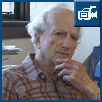
|
|
Becker assesses his October 2001 prediction that the September 11 attacks would not have a long-term effect on the US economy. (Download: 3.09 MB)
|
|
|
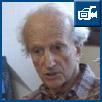
|
|
In Becker's view, long-term impact would only be felt after a series of terrorist strikes. (Download: 2.01 MB)
|
|
|

|
|
Becker explains that the airline industry has been hit hardest, with traditional powers suffering from the slump in air travel.(Download: 1.26 MB)
|
|
|

|
|
Becker scoffs at companies that have cited September 11 as a reason for corporate layoffs. (Download: 1.79 MB)
|
|
|

|
|
Government spending on increased security at nuclear plants and other facilities has not had a major impact on the economy, Becker says. (Download: 2.19 MB)
|
|
|
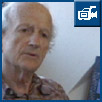
|
|
Becker opposes the government takeover of airport security, believing private companies can do the job better and respond to consumer concerns. (Download: 2.23 MB)
|
|
|
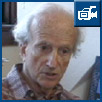
|
|
Becker weighs the pros and cons of tighter immigration policy on the United States. (Download: 2.68 MB)
|
|
|

|
|
Individuals in other countries, not whole economies, are most affected by stricter immigration policies, Becker says. (Download: 1.57 MB)
|
|
|

|
|
Can you quantify the sense that we're not as safe as we used to be? Becker answers and points to the overall strength of the economy. (Download: 1.19 MB)
|
|
|
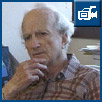
|
|
Are the attacks more comparable to a natural disaster than a war? Becker discusses the hidden costs of preventing future attacks. (Download: 2.27 MB)
|
|
ABOUT THE AUTHOR |
Gary Becker
Gary Becker received his B.A. from Princeton University and his M.A. and Ph.D. from the University of Chicago. He taught at Columbia University for 12 years before returning to Chicago as University Professor of Economics in 1970. He also became University Professor of Sociology in 1983. In 1992, Becker was awarded the Alfred Nobel Memorial Prize in Economic Sciences.
Among his publications are the books The Economics of
Discrimination, Human Capital, Economic Theory, The Economic Approach to Human Behavior, A Treatise on the Family, Accounting For Tastes, and The Economics of Life (with Guity Nashat).
His research interests include price theory, human capital and the family, and the application of economic analysis to areas outside of traditional economics.
COPYRIGHT | This interview was conducted on August 30, 2002. Copyright 2002 the University of Chicago.













